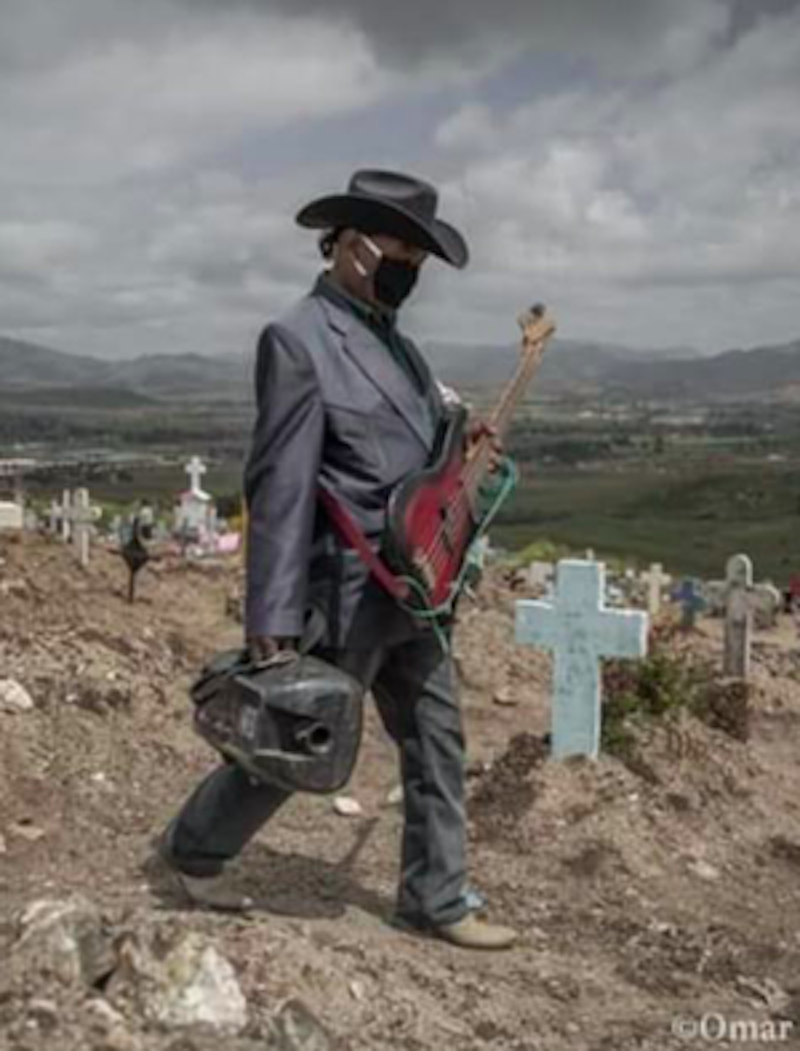In 1977, the song “1977” was released by The Clash. It changed the way I thought about punk music and the wide variety of bands that came oozing out of that sound and lifestyle. The Ramones and Sex Pistols made a big impact but they didn't truly embrace a political stance or promote a perspective of intellectual pursuits. The Clash was the thinking man’s punk band. Although at the time we didn’t think of ourselves as punk. We didn’t even think about stuff that much. We broke every rule in the book. We just made it up as we went along. In those times, clear thinking was in short supply and it still is today. We've always lived in interesting dangerous times. The refrain from “1977” is "No Elvis, Beatles or The Rolling Stones." I shared those same feelings. The flip side was "White Riot."
A message was in the music rallying British punks to rise up. Revolution and riots are nothing new in America but the message rang true. We had our own revolution against the British long ago. Now the second invasion of Brit bands was getting old and tiresome. Incendiary lyrics and hyper speed guitar chords made punk tunes all the more desirable to listen to: "A riot of our own." I never had a desire to see or hear the dinosaur stadium bands like Emerson, Lake & Palmer, Yes, Pink Floyd, The Who or the Grateful Dead. Even Black Sabbath and Led Zeppelin were too big for their britches. It was the logical choice for punk to reject all that was sacred in the pantheon of rock ‘n’ roll in the late-1970s. Alas, it all came crashing down with crass commercialism.
The Rolling Stones were always my favorite rockers. My first experience with the Beatles was that Sunday night in 1964 when they invaded America via television on The Ed Sullivan Show. My aunt wanted to see what all the fuss was about. My mom really didn't care. She thought they looked like girls. My brother and sister were there watching in amazement too. I couldn't understand why all the girls in the audience were screaming and fainting. Who were these guys in matching suits and weird hair? Youth culture would never be the same. We were screwed and sold to the highest bidder.
I still can't understand why the Beatles were such a phenomenon. What was the big deal? They represented something I couldn't fathom at the time. A certain sex appeal and primal urge. Teenage girls had moist panties because of them. Most young boys were jealous yet wanted to imitate them to attract their latest dream girl fantasies. In the 1940s, Frank Sinatra had the same kind of mass hysteria wherever he performed in concert. It was reported the theater floors were flooded with puddles of urine. Fans were so excited they pissed themselves. There was a well-publicized rumor that his manager paid girls $5 each and put them near the stage front and center to scream and yell, "Frankie, Frankie, I love you!" to whip up excitement. Elvis Presley's manager Colonel Tom Parker probably used the same gimmicks in the 1950s when Elvis played state fairs and podunk theaters.
Another early Beatles memory was the Saturday matinee at the Arcade movie theater in Hamilton with my brother and sister to see A Hard Day’s Night. It was in black & white like the whole world seemed at that time. Although it was the 1960's, it was like everything was stuck in post-WWII sentiments of patriotic nostalgia for war. I thought the movie was silly but my older brother insisted we stay and watch it again. By the time it was over we were late for supper and we saw my angry and worried mother walking up Hartford Rd. in search of us. After that, I didn't pay much mind to them and listened to a lot of Frank Zappa, Captain Beefheart and The Rolling Stones. There were also a few years of The Monkees, who had a TV show and a few hit albums but they weren't a real band. They just played a Hollywood version of rock ‘n’ roll for teen TV audiences.
The Monkees reminded me of that first Beatles movie. It was like people couldn’t get enough of that magic stuff. In quick succession, Sgt. Pepper’s, Magical Mystery Tourand the White Album took it to the logical conclusion. Let It Be was a fitting end to a stellar career of musical excess.
I was sitting on a back porch, stoned, the first time I heard Sgt. Pepper’s, and a year or so latter sitting in a friend’s club basement listening to the White Album, stoned again. I didn’t really get the hidden meanings and cryptic messages they tried to convey to my stoner mind. The Beatles were never that cool and Elvis wasn’t that hot.
Idol worship was the thing to do in the rollicking world of teenage angst. Trying to fit in and be part of the great new society that was already corrupt, bankrupt, sold out and phony as the Hollywood producers and Madison Avenue ad men could conjure up. Cheap imitation or sophisticated copies of what freedom supposedly represented in the hyped-up world of reality and the great escape from its death grip. Now it’s ridiculous to see yet another young dumb kid sing a song, playing bad guitar, doing their thing. A sad testament to our fickle times and plain luck that the Rolling Stones are the only ones still around. Tragic clowns in a spaced-out circus at the center of a wasted universe.

